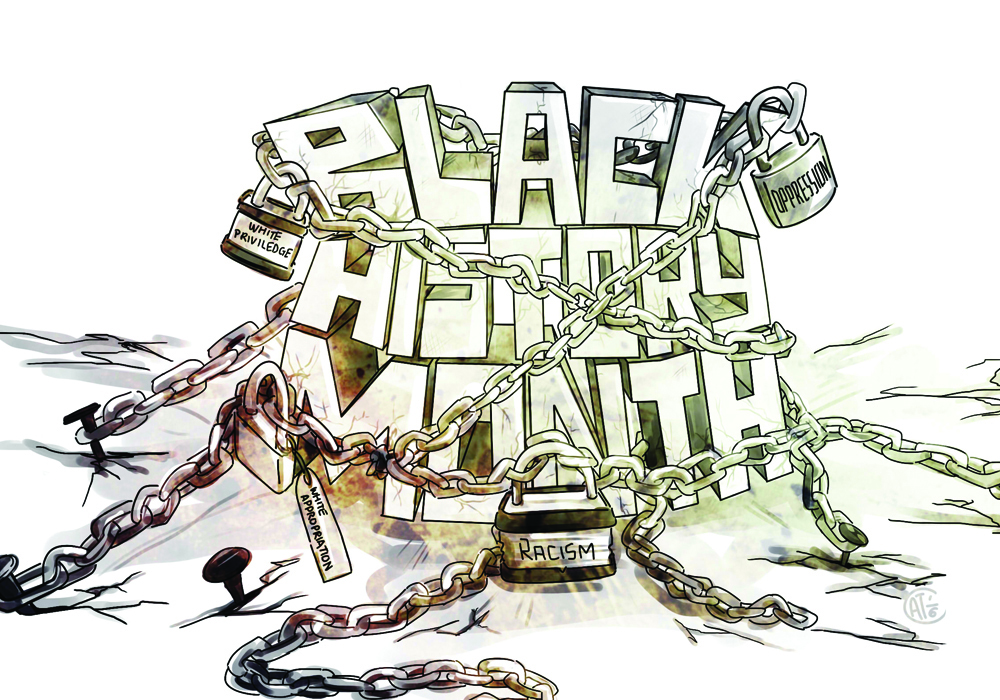Shona Skerrett, contributor
In public school, the entire student body would proceed to the auditorium for an assembly during the first week of February. As we listened to the introductory remarks, we were reminded that today was the beginning of Black History Month. At this point, the sudden placement of Martin Luther King Jr. and Rosa Parks posters on the walls suddenly made sense. In relation to this celebration, the morning announcements over the PA system contained tidbits of information pertaining to black history.
During these times, I felt proud that my heritage had its own month to reflect and educate the nation of our central role in history. And I am sure historian Carter G. Woodson must have been proud as well. In an attempt to raise awareness of black history and counter negative stereotypes and caricatures, Woodson proposed an observance to honour the accomplishments of black Americans. This induced the creation of Negro History Week in 1926. Accordingly, during the 1970s, it became known as Black History Week and then expanded to a month in 1976. Within the realm of Canada, the House of Commons officially recognized February as Black History Month in 1995, albeit it was celebrated before this moment, and the Senate of Canada proceeded to do the same in 2008.
Tiresome effort and grueling hours must have been dedicated to establish Black History Month. But maybe it is time to put a halt to this celebration. Black history spans many generations and thousands of years. With this in mind, is it possible to cover everything within the span of 28 days?
Lucky for us it’s a leap year. Our history should not be relegated to a month, let alone the shortest month of the year. Or maybe it can, due to limited mainstream engagement with the month. This includes posters of famous black leaders only to be dusted off and hung on the walls for a limited time, the annual assembly and television special. However, if we truly grasp the vastness of black history, 28 days of posters and television specials seem inappropriate.
It is not an isolated phenomenon. In fact, it is connected to the history that is taught in schools. For instance, if we look at the well-known Loyalists during the 1800s, there were in fact many Loyalists who were black, relocated to Nova Scotia, and built thriving communities such as Africville.
Although this is pertinent information, it is unfortunate that people are made to believe that black history does not reach the history of British Loyalists. Accordingly, it is information like this that is rarely taught in schools. But why? Perhaps this is because individuals fought and settled for a month, instead of making our entire history known within the public, educational and media spheres on a daily basis.
The same way European-influenced history is subject to yearly scholarship, so should black history as it is an essential part of Canadian history. If we agree that black identity has been marginalized and excluded from the public sphere, efforts should be made for the daily integration of black history and heritage. Simply accepting a month tells the public that we are fine with the status quo of cultural exclusion, so long as we have our 28 days of cultural recognition.
By continuing the celebration of Black History Month, we indirectly allow the exclusion of our heritage. By settling for a month, we settle for the disregarding of our history in the public sphere and on a daily basis, when in fact black history should be sustained before and after the month of February.
Perhaps Woodson did not see this coming. Perhaps he truly wanted to celebrate black accomplishments, while having black history assimilated in the curriculum. Nonetheless, Black History Month does have the potential to be beneficial, if celebrated correctly.
However, we must remember, black history is Canadian history and by extension, world history. It deserves more than 28 days and popularized representations. We should not have to wait every four years for slightly more time to discuss our heritage, culture, and history.


